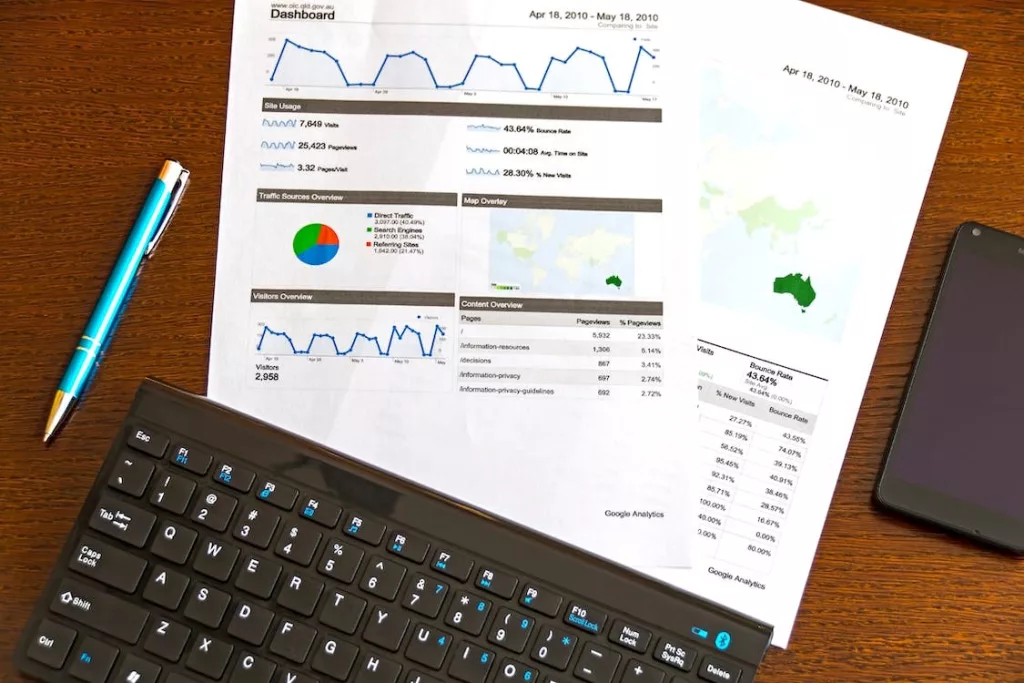
If you are interested in mathematics, statistics, and technology and can’t decide which one of these educational paths to pursue, you have come to the right place. You must have heard the term data analytics, and by becoming a data analyst, you will be able to combine your passion for all three things mentioned above.
As the name suggests, data analysts study or analyze the data collected to get useful insights. The best thing about becoming a data analyst is that you don’t get confined to work in a specific industry forever. There is a need for data analysis in every sector, and thus you can easily transition within industries as the demand for data analysts is increasing rapidly.
However, there are different educational paths you can take in the field of data analytics. This article will point out four data analytics careers you can choose from and discuss the educational requirement and prospects of each.
- Business Analyst:
If you want to become a data analyst and want to work in the corporate sector, you can become a business analyst or a business intelligence analyst. By earning an MBA in data analytics, you can qualify for this role. Nowadays, you can even go for an MBA in data analytics online. As a business analyst, you will gather, visualize, and analyze a corporation’s data to identify which strategies are working well for the business and which aren’t. You will generate reports showing the weak points and strengths of the business.
A business intelligence analyst also has the same responsibilities, except that business intelligence analysts use only descriptive analytical techniques, while the responsibility of a business analyst is to engage in predictive, diagnostic, and prescriptive analysis as well. Business analysts play a key role in making a business more profitable. That is why there is a bright prospect for these careers.
According to stats, there will be a 25% growth rate in business analyst careers by 2030. As of February 2023, the average salary of business analysts is $78,285. Glassdoor reports that business intelligence analysts earn a yearly average salary of $88,566, and there is an 11% projected growth rate for business intelligence analysts from 2019 to 2029.
- Healthcare Data Analyst:
The healthcare industry generates heaps of data. It is such an industry that not only generates tons of data but also there is much need for experts that can interpret that data to gain helpful insights that will help in advancements in the field of health and medicine. So if you want to work in the healthcare field but not necessarily as a healthcare professional, you can stay in your tech element and still serve in the medical field. With the major positive impacts of data analytics and big data in healthcare, a healthcare data analyst has become the top trending and attractive job title on its own. This career is also referred to as the business side of medicine.
With this job, you will work with clinical researchers, physicians, and key medical decision-makers. You will provide these professionals with data-driven and actionable insights so that the patients receive the best level of care with improved and adapted strategies. Healthcare data analysts enjoy high salaries as well. Payscale reports that healthcare data analysts make up to $61,194 yearly on average. The research and data analysis in this sector never stops; thus, the demand for healthcare data analysts will never fade.
Even though you need one or two years of experience working as a data analyst to start working in the healthcare sector, the good part is that you don’t necessarily need prior experience in the medical field. If you have done some entry-level job in any industry, you can apply for the position of healthcare data analyst. You will need to have at least a bachelor’s degree in a data analytics field like statistics, mathematics, or computer science.
- Data Governance Analyst:
As the world is producing more and more data with every passing minute, there is also an excessive need to govern or regulate the data. That is why cyber security trends are on the rise these days. Thus, this all has led to a rather new type of career in data analytics, namely data governance analytics. Businesses need to collect and analyze the data of customers to improve their campaigns, marketing strategies, sales, profits, and overall performance. But while collecting and analyzing the data, they must follow all the state or government rules and regulations.
Data governance analysts are professionals that ensure that an organization’s data is consistent, compliant, and accurate, according to the regulatory and legal requirements. Data governance analysts make data management policies, standards, and procedures and also ensure that everyone thoroughly follows these policies or strategies in the organization.
The minimum requirement to enter this job field is a bachelor’s in data analytics or computer science or a relevant field. Glassdoor reports an average yearly salary of $97,221 for data governance analysts. The future in this career path is very bright as the data governance market is growing rapidly as we generate, analyze, and thus need to regulate and govern huge amounts of data. In 2021, the worth of the data governance market was $2.06 billion, and by 2030 it is expected to grow up to $10.93 billion.
- Data Scientist:
It appears that data analysts and data scientists are similar roles, but there are some differences. The major difference is that data scientists must possess programming and computer skills, along with analytical and data-handling knowledge.
To work as a data scientist, you will need a master’s degree in data analytics or computer science; some companies might even higher you with a bachelor’s degree if you have some prior experience. A data scientist has a deeper knowledge of machine learning, programming, and algorithms. Data scientists devise predictive models and write algorithms that can predict future outcomes of specific decisions. The average yearly salary of data scientists is $124,693.
Conclusion:
Nowadays, all business progress and activities are almost dependent on big data analysis. Data analysts study a data set, and by interpreting the patterns in the data, they can point out the best strategies that will result in maximum highest productivity, efficiency, and profit. If you are interested in pursuing a career in data analytics, here are four options you can explore.







